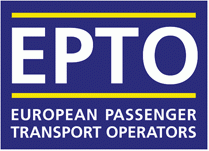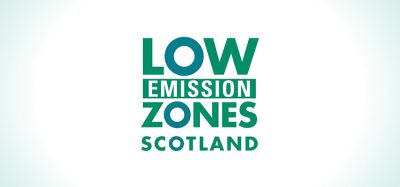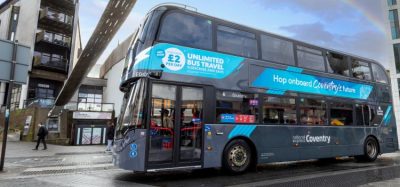EPTO – Supporting a competitive market
- Like
- Digg
- Del
- Tumblr
- VKontakte
- Buffer
- Love This
- Odnoklassniki
- Meneame
- Blogger
- Amazon
- Yahoo Mail
- Gmail
- AOL
- Newsvine
- HackerNews
- Evernote
- MySpace
- Mail.ru
- Viadeo
- Line
- Comments
- Yummly
- SMS
- Viber
- Telegram
- Subscribe
- Skype
- Facebook Messenger
- Kakao
- LiveJournal
- Yammer
- Edgar
- Fintel
- Mix
- Instapaper
- Copy Link
Posted: 4 July 2014 | Jan Möllmann, Secretary General of EPTO | No comments yet
EPTO is the European Passenger Transport Operators association, whose eight members are amongst the group of the largest European public transport operators in Europe. EPTO promotes the development of a competitive market structure for the supply of public transport services and assists and supports the opening of the passenger transportation markets. The association is a key representative of the operators to the European institutions and works closely with the European Parliament, the European Commission and other European bodies. Jan Möllmann, Secretary General of EPTO explains more about the association and how it supports its members…


EPTO members include: Arriva; First Group; Grupo Barraqueiro; Go-Ahead; Keolis; National Express; Stagecoach; and Transdev.
EPTO’s objective is to ensure that Europe’s citizens have access to high quality passenger transport services that are effective in meeting their needs, are efficient in the use of resources and represent good value for money.
In practical terms, evidence shows that wherever markets have been liberalised the public transport market share increased through real customer orientation and quality, as well as costs being better controlled through increased efficiency and faster responses. There are numerous positive examples. In Germany, the development in regional rail in 10 years of tendering, performance contracting and regionalisation lead to +28% train-km, 26% less in public compensations, an increase of 43% on passengers and a reopening of more than 500km lines and 300 new stations. In Sweden, tendering and regionalisation lead to subsidy reductions of 20-30% with much higher customer satisfaction being recorded.
Naturally incumbent operators have the interest to preserve the current state of play. Many will try to defend their positions and strongly support lobbying against market opening at national but also at EU level. Hence the major role of EPTO is to lobby European institutions to demonstrate the benefits achieved by competition. The lobbying ranges from trying to persuade European stakeholders of the value for the customer and the tax payers offered by market opening and competition – and it ranges to making sure that policy makers, legislators and other stakeholders understand the full context and the impact of decisions they make.
As a principle, EPTO generally supports initiatives that bring economic and other benefits desired by customers and operators, and which have benefits that outweigh any adverse effects on operators or on the market. Initiatives which will encourage more people to use public transport, encourage rail stakeholders to invest, and which support the development and opening of the European Rail Markets, are all welcomed. EPTO supports stakeholders to come to initiatives being reasonable, practical, workable and efficient at the same time and which need to bring economic benefits to customers without imposing unacceptable financial burdens upon operators.
Our agenda
The main working focus lies on promoting the idea of market liberalisation and competition in general, as well as promoting the development of clear, strong, workable and effective legislative solutions. The original reason for establishing EPTO in 2006 had been the intention to contribute to the legislative process around – what became later known as the public service regulation EC 1370/2007 – with one clear and distinctive voice in favour of competition. During the past four years many issues on rail market liberalisation, in particular the recast of the First Railway Package, had been high on the agenda. The on-going Fourth Railway Package, proposing to open rail passenger markets, is also a key subject for EPTO.
Also over the years, a range of legislative and policy issues have been addressed, which at first glance did not seem to have direct impact on market opening, as they could have affected the level playing field for new entrants or could have had adverse effects on the development of efficient, workable and practical frameworks. In the past these were for example the rail passenger and the bus and coach passenger rights or on-going discussions at European level around central multi-modal retail and ticketing, as well as passenger information solutions. There is also a particular concern to ensure that any new projects that set standards are open and transparent so that there will be no distortion of competition.
On a number of issues not being in the core focus EPTO works closely together with other associations and stakeholder groups. These issues will usually be related to technical, environmental, tax, and sustainability fields.
Fourth Railway Package
An important challenge in the near future will be promoting a more competition-oriented approach in the Fourth Railway Package in view of discussions in the Council and of the coming second reading in 2015 after the critical results of the first reading. The real downside for EPTO of the first reading in Parliament was that the amendments are far less ambitious than drawn in the original proposal by the European Commission. A range of provisions would still allow de facto closed markets in many countries. For example, the extension of the transition period or the possibility to maintain direct awards is less acceptable from a competition point-of-view. EPTO fears that citizens today living in closed markets may remain deprived from the large benefits in terms of quality for the passengers and in terms of cost for the taxpayers as direct award of contracts will still be possible and potentially favour the incumbent operators to continue their legacy-based services. In many cases responsible public transport authorities will still be facing the lack of choice between concepts and competitive bids for those services.
It has turned out in recent discussions around rail market liberalisation, that it is important to outline the positive effects of liberalisation for the employees and their working conditions. In Europem private operators (for core skilled trades) have broadly similar and, in many cases, have slightly better pay and employment condition than incumbents as positive remuneration packages are necessary to attract and motivate employees. In liberalised countries, the wage will usually have to be the same for the skilled workforce, in some cases financial conditions have even increased far above national developments in other sectors. In all liberalised markets, skilled employees have retained their pay levels, and in most cases even benefited from higher pay and quicker improvements. Additionally, private operators have all focused local organisations that offer more sustainable jobs, greater flexibility and reliability for employees and they were the first to offer new part-time job models for employees which respond to individual lifestyles (e.g. family-friendlier opportunities with guaranteed working shift times and working places). Innovative HR management models develop employee engagement, enable better understanding of a company’s vision and encourage motivation so employees can contribute to business delivery and success.
Public service regulation 1370/2007
Partly problematic results of the first reading of the Fourth Railway Package were the proposed severe changes to the Public Service Regulation 1370/2007. What has been a very difficult compromise result of more than seven years of discussions between all stakeholders is about to change from one second to the other and it can adversely affect the framework for urban, suburban and regional services of other modes than rail. Additionally, the risk is given to lose the very well-balanced position and being put back to square one.
Enacted in December 2009 and defining a transition period of 10 years, the public service regulation 1370/2007 sets a half-time review regarding its implementation. Member states are required to write and submit implementation reports in 2014. BAsed on the experiences and the knowledge of its members, EPTO has decided to prepare its own initiative implementation report and will comment on the implementation from a new entrant point-of-view.
In its recently published interpretative guidelines on the public service regulation 1370/2007, the EC has already addressed many points of concern brought forward by EPTO members over recent years. Crucial points for example include clarifications on the geographical limitation of those operators who have received an in-house award of a transport service contract by their public owner without tendering.
Passenger information and ticketing
During recent years, the EC has driven forward a number of initiatives aimed at better travel information for passengers, easier access to public transport in terms of retail and ticketing under the umbrella of passenger rights and consumer protection. It is expected that the new Commission will continue to drive the initiatives with even quicker pace.
For EPTO, passengers are the focus of the service offers its members. Thus easy-to-access and easy-to-understand passenger information about travel opportunities are a key element of all service delivery. Where members have perceived an economic demand they always have developed innovative sales and pricing concepts including, for example, integrated ticketing wherever possible. However, it appears that the EU institutions aim at stronger regulatory measures in this field. Feeding into the discussion EPTO is determined to avoid a situation where – as it appeared – solutions are developed for long-distance travel, equating to 5% of the rail trips, but which then dictate the solutions for the majority 95% of rail trips made in the EU, being local journeys.
In general, the development of EU-wide solutions enabling passengers to obtain travel information is welcomed as long as existing locally developed solutions can remain in place as they are. However – and this seems important – it needs to be clear to stress that any additional cost burden will either have to be paid by the organising authority or the passenger, who would finish up paying more for all travel products, when in the vast majority of cases all they want to do is purchase a ticket from their local train operator to make a local journey.
Looking overall at the achievements of legislation proposed by the European institutions, EPTO members see many positive results. A viable basis has been developed to help create many opportunities to improve the public transport share by increasing the quality of services and using public money in a more efficient way. EPTO members will continue to support the European institutions in their will to improve the public transport share through competition.
Reference
Biography
Jan Möllmann is the Secretary General of EPTO. He is an educated political scientist and economist and started his career in public transport in 1995. In 2004, Jan joined the private sector public transport industry.






